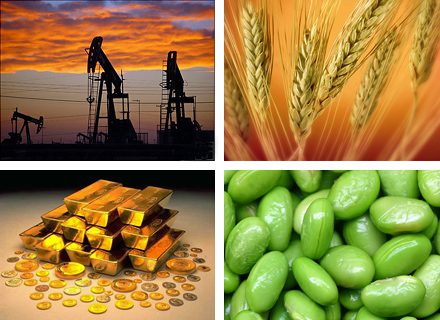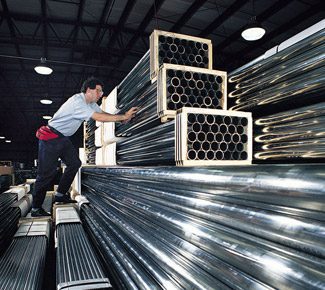In Part II (see Part I here) we explore why copper prices have increased by 4x over the course of 10 years.
So says an infographic from www.visualcapitalist.com which is made available by Lorimer Wilson, editor of www.munKNEE.com (Your Key to Making Money!).
Major factors, as outlined in the infographic below, include lower ore grades, exploration pushed to higher risk areas of the globe, and growing Chinese demand.
HAVE YOU SIGNED UP YET?
Go here to receive Your Daily Intelligence Report with links to the latest articles posted on munKNEE.com.
It’s FREE and includes an “easy unsubscribe feature” should you decide to do so at any time.
Join the crowd! 100,000 articles are read monthly at munKNEE.com.
Only the most informative articles are posted, in edited form, to give you a fast and easy read. Don’t miss out. Get all newly posted articles automatically delivered to your inbox. Sign up here.
All articles are also available on TWITTER and FACEBOOK
*http://www.visualcapitalist.com/portfolio/copper-the-essential-metal-part-2
Related Articles:
1. Copper: The Nervous System of Our Society – Here’s Why
Copper is one of the most widely used metals on the planet, and has been for more than 10,000 years. Today, it’s the nervous system of our society – of our cities, homes, tools and toys. The simple truth is that the western lifestyle is completely dependent on copper. Here’s why as depicted in the infographic below.
2. The Implications of Coming “Peak Copper” for America – and the World!
About two years ago, I looked through a BHP Billiton presentation which listed the number of years remaining for particular commodities. It was not an analysis of “peak” commodities as such, just a report on when various commodities would be completely, 100% depleted based on current usage rates and reserve assumptions. Copper in that report was determined to be scarcer than oil! [What does that mean for the future well-being of the U.S. – and the world?] Words: 1380
3. Check Out These 5 Hard Asset Investment Alternatives to Gold
While the 2010 gold rush is making a lot of headlines, it’s important to not overlook other hard assets [such as silver, copper, platinum, palladium and rare earth metals] that are good investment alternatives to gold and have all rallied to fresh highs recently as well. While each of these offers its own strengths and weaknesses they are ways to diversify your holdings away from gold if you are worried about a crash. Words: 1561
4. Will Copper Replace Gold as World’s “Most Valuable” Metal?
I am convinced that we are still relatively early in a secular commodity bull market. In fact, with the modernization of Chindia and numerous other less-developed nations, I expect this bull market will be one for the record books. Fundamental demand coupled with inflation will push resource prices to unimaginable heights. Words: 805
5. Unlike Gold, Bull Market in Copper to Continue for Decades – Here’s Why
Gold and silver continue to receive the lion’s share of press headlines and investment writers’ attention. [While] our team believes this theme will continue, there are other assets which benefit from a weak dollar, especially if a weak dollar is combined with some decent economic activity. [One such asset] is copper, a base metal that, like gold and silver, [that will] appreciate with inflation and has tremendous potential for increased demand given the theme of 2012 – economic growth. [Let me explain in some detail why we think that is the case.] Words: 1150
6. Manganese Oxide & Electric Vehicles: The Next Great Power Couple
Manganese is the 4th most traded metal in the world, mainly because it is indispensable in the production in steel and other alloys. The fastest growing sector, however, is in the use of manganese oxides for use in batteries and particularly rechargeable lithium ion (lithiated manganese dioxide or LMD) batteries. LMD batteries are ideal for applications that require high levels of power all at once such as power tools and now electic and hybrid vehicles. Take a look at the infographic presented here to learn about the important role manganese will play in our future.
7. Graphite: The Driving Force Behind Green Technology
Global consumption of natural graphite has doubled in the last 10 years and will increase even more so in the next decade due to a) the continuing modernization of China, India and other emerging economies given the strong demand from traditional end uses such as the steel and automotive industries and b) the advent of new applications for graphite such as lithium-ion batteries, fuel cells, and nuclear and solar power. As a result of such increased demand prices for large flake, high purity graphite (+80 mesh, 94-97%C) have more than doubled making the mining of such a minerals increasingly profitable. Learn even more by viewing the infographic below.
8. It’s Time to Replace the Refrain “Got Gold?” With “How Much Graphite Stock Do You Own?”
Demand for lithium-ion (li-ion) batteries over the next 8 years – for use in electric and hybrid cars, smart power grids and mobile consumer devices – is going parabolic. Sales of electic/hybrid cars, for example, will be increasing 5-fold to 4,000,000 over that timeframe and every such car will have 30-110kg of graphite in their batteries, depending on the car, that can not be replaced economically. Forget the common refrain “Got gold?” A more appropriate refrain should be “How much graphite stock do you own?” Learn more about graphite in the infographic below.
9. Graphene Could Have a DRAMATIC Impact on Our Future – Here’s Why
Tens of billions of dollars per year are being spent worldwide on graphene research. Why? Because graphene could have a dramatic impact on our future by changing the fields of computing, energy, materials and optics. How? By making everything smaller, stronger and more ecologically sustainable. Below is an infographic that provides all the details.
10. Vanadium: An Infrastructure Essential With Major Potential Use in Energy Storage and Green Energy
This infographic looks at the primary uses for vanadium, its supply and demand, and future applications that could potentially affect the metal’s demand.
11. Tungsten Supply Risk Could Have Negative Impact on Cost of Living – Here’s Why
Tungsten is unique in its extremes. It’s extremely hard, heat resistant, dense, and environmentally benign. It’s used to make cemented carbide, one of the strongest and most durable compounds. That’s the positives. but, unfortunately there are negatives too. Take a look at the infographic below for more information.
12. Mining of Heavy Rare Earth Elements (HREE) in Canada by 2017 Offer Major Investment Opportunity
95-97% of the supply of Rare Earth Elements (REE) – integral to the high-technology, nanotechnology, hybrid automotive, aerospace and defence industries – currently comes from China. China has continued to reduce its export quotas to the point where it will only be supplying 50% of the world’s needs by 2015. This will have a major impact on prices for each of the 17 Light (LREE) and Heavy (HREE) elements that comprise the category – and the products in which they are used – unless alternate sources of supply are found. A Canadian company has done just that and will be bringing one of the largest HREE resources in the world (44% HREE, 56% LREE) into production by 2017. Below is an infographic on the REE market and a link to a Proactive One 2One Investor Forum presentation I attended on REE market fundamentals and the development and prospects of Quest Rare Minerals Ltd. and their Strange Lake project.
13. China & India to Drive Diamond Demand this Decade to New Heights – Here’s Why
China and India are about to drive diamond demand through newly affluent population. In the world diamond retail market, Asia in 2005 made up 23% of purchases. In 2020, they will make up 57%! Such growth in diamond demand should make for a sparkling future for those who invest prudently. In the infographic and copy below you will learn all about diamonds.
14. This Interactive Table of Commodity Returns Is Easy to Use – Try It
Natural resources are the building blocks of the world, essential to progress and prosperity. These commodities, like all investments, can have wide price fluctuations over time. The interactive table provided shows the ebb and flow of commodity prices over the past decade and illustrates the principle of mean reversion—the concept that returns eventually move back towards their mean or average. [Take a look.]
15. The “Ins” and “Outs” of Investing in Commodities
Commodities have obvious appeal to active investors looking to generate profits from short-term price movements [but while] the volatility of this asset class is ideal for risk-tolerant individuals who actively monitor their positions…commodities may also have appeal to the long-term, buy-and-hold crowd…These potentially appealing attributes come with plenty of risk, [however, as] the path to commodity exposure is full of potential obstacles and pitfalls that can erode returns and lead to a less-than-optimal investing experience. Here are ten rules of thumb that will help you achieve a more successful experience investing in commodity markets. Words: 2871
 munKNEE.com Your Key to Making Money
munKNEE.com Your Key to Making Money













